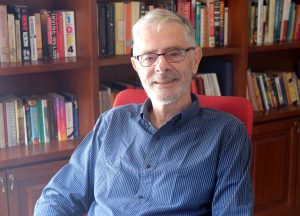Keith Loveard’s 50-year career in journalism has seen him develop special interests in a number of fields. Prominent among them is his focus on Indonesia, where he has lived for more than 30 years.
This includes the struggle of moderate Islam against fundamentalist fanaticism, the climate crisis and, as he puts it, the pervading sickness of inequality across the globe.
Loveard spoke with Luke Hunt about his new book, “Indonesia: Dividing the Spoils,” the country’s legacy of environmental decay and entrenched corruption, and the trends that have the potential to improve the situation.
These include greater spending on social welfare programs and the potential to do more by government and civil society groups, not least the major Muslim organizations Nahdlatul Ulama and Muhammadiyah.
Loveard warns that a lack of action on equity “could see a conflagration in Indonesia fueled by lack of action to stop the coddling of elites by corruption and collusion between bureaucrats and those in control of policy implementation.”
For the last 15 years he worked as an analyst for a Jakarta security consulting group, where he discussed the prospects for a breakdown with business leaders and officials from a number of influential embassies in Jakarta and their governments’ intelligence specialists.
Loveard says the essential message in “Indonesia: Dividing the Spoils” is that action is needed to reduce inequity across the globe and that, if it acts promptly and decisively, Indonesia is in a good position to set a positive example in stemming the spread of this disease.

































